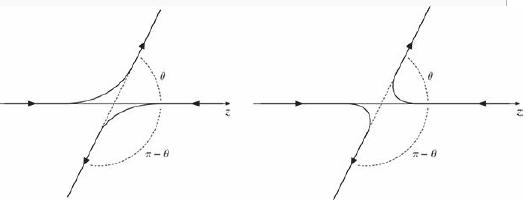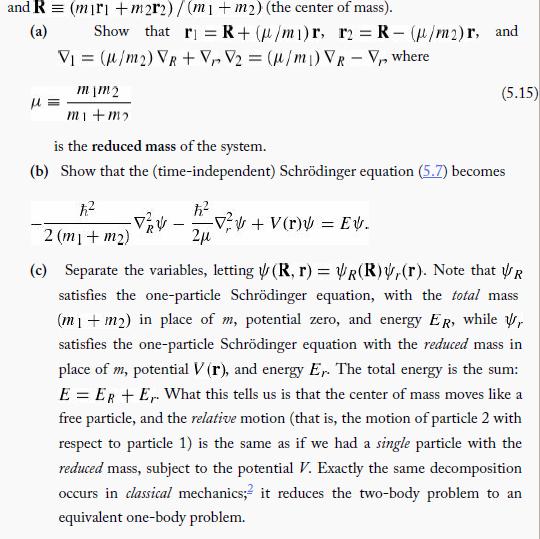Scattering of identical particles. The results for scattering of a particle from a fixed target also apply
Question:
Scattering of identical particles. The results for scattering of a particle from a fixed target also apply to the scattering of two particles in the center of mass frame. With Ψ(R,r) = ΨR (R) Ψr (r), Ψr (r) satisfies

(see Problem 5.1) where V(r) is the interaction between the particles (assumed here to depend only on their separation distance). This is the one-particle Schrödinger equation (with the reduced mass μ in place of m).
(a) Show that if the two particles are identical (spinless) bosons, then Ψr(r) must be an even function of r (Figure 10.15).
(b) By symmetrizing Equation 10.12 (why is this allowed?), show that the scattering amplitude in this case is
![]()
where f(θ) is the scattering amplitude of a single particle of mass μ from a fixed target V(r) .
(c) Show that the partial wave amplitudes of vanish for all odd powers of ℓ .
(d) How are the results of (a)–(c) different if the particles are identical fermions (in a triplet spin state).
(e) Show that the scattering amplitude for identical fermions vanishes at π/2.
(f) Plot the logarithm of the differential scattering cross section for fermions and for bosons in Rutherford scattering (Equation 10.93).

Figure 10.15: Scattering of identical particles.


Problem 5.1

Step by Step Answer:

Introduction To Quantum Mechanics
ISBN: 9781107189638
3rd Edition
Authors: David J. Griffiths, Darrell F. Schroeter





